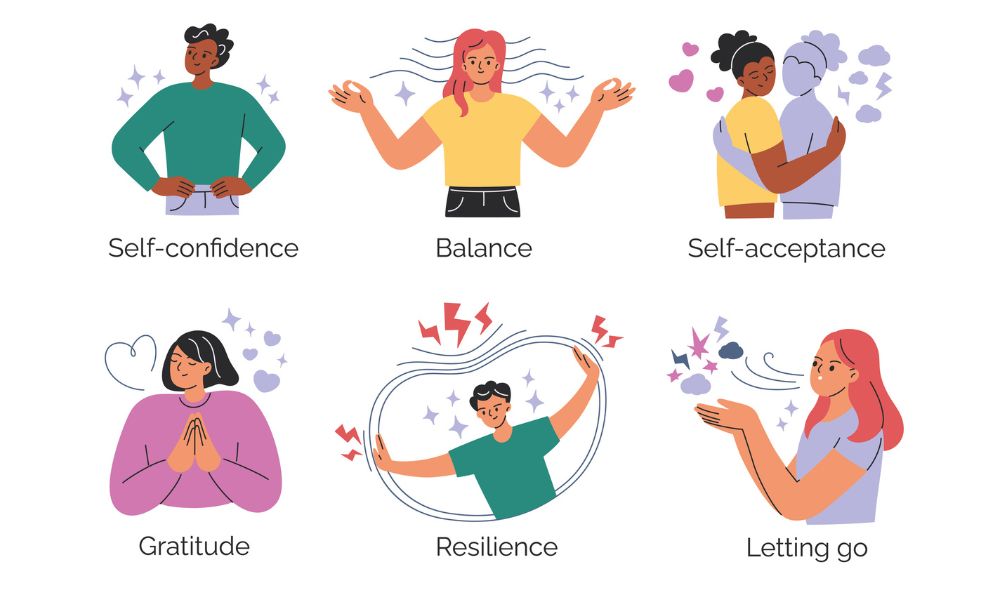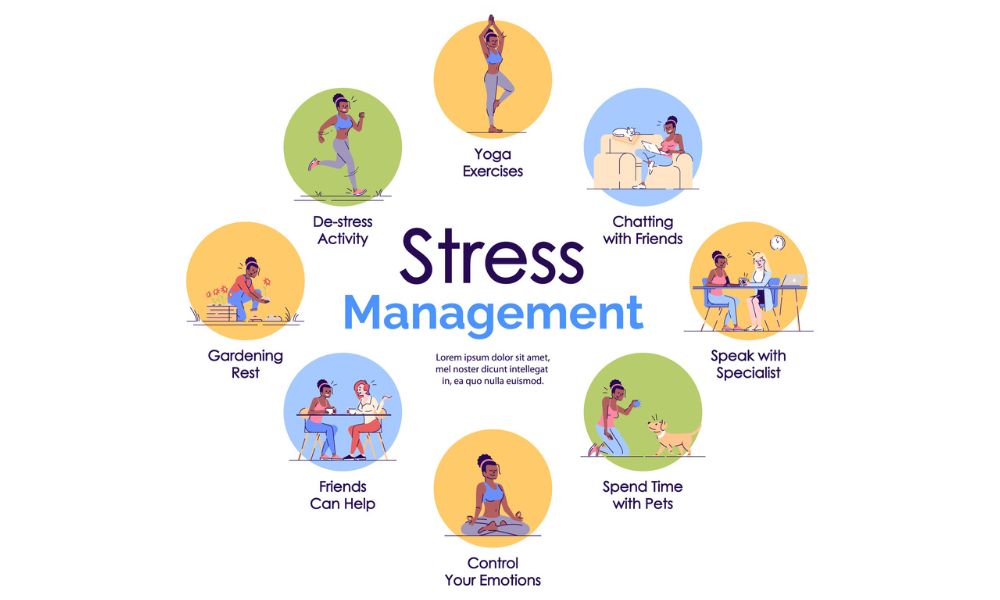Anger is a common emotion that we all experience, but there are many misconceptions surrounding it. These myths can lead to misunderstanding how we should manage and express our feelings. By debunking these five common myths, we can gain a clearer perspective on anger and learn healthier ways to handle it.

Understanding anger starts with recognising that it is not always a negative emotion; it can be a signal to address underlying issues. Many people mistakenly believe that anger always leads to aggression or that it must be suppressed. In this article, we will clarify these misconceptions and explore the true nature of anger.
Join us as we uncover the realities of anger management and how we can foster emotional intelligence in ourselves. By shifting our perspective, we can learn to navigate our emotions more effectively and foster healthier relationships.
Key Takeaways
- Anger is a normal human emotion that can serve a positive purpose.
- Recognising the causes of anger can help us manage it better.
- Healthy expression of anger is vital for mental health and well-being.
Understanding Anger as an Emotion
Anger is a complex emotion that we all experience. It has specific characteristics and serves different purposes compared to other feelings. Understanding anger can help us manage it more effectively in our daily lives.
The Definition and Characteristics of Anger
Anger is a strong emotional response to perceived threats or injustices. It often arises from feelings of frustration, hurt, or annoyance. We might notice physical signs of anger, such as increased heart rate or tense muscles, as our body prepares to react.
Anger can be both healthy and unhealthy. Healthy anger can motivate us to address issues and seek change. Conversely, unhealthy anger can lead to aggression or harm. It is crucial to recognise when anger is beneficial and when it becomes destructive.
How Anger Differs from Other Negative Emotions
Anger stands apart from other negative emotions like sadness or fear. While sadness typically leads us to withdraw or seek comfort, anger often urges us to confront or resist what we perceive as wrong.
We may feel anger quickly in response to a trigger, unlike sadness, which can take time to develop. Furthermore, while anger can lead to assertive action, feelings like fear may result in avoidance. Understanding these differences allows us to respond to our emotional state with greater awareness and control.
Exploring the Causes of Anger
Anger can often stem from various factors in our lives. Understanding these causes helps us navigate our feelings better. Two main influences are common relationship triggers and our personality traits.
Common Triggers in Relationships
Relationships can be a significant source of anger for many of us. Miscommunication is often at the root of our frustrations. When we fail to express our feelings or misunderstand the intentions of others, anger can easily arise.
Another trigger is betrayal, which can happen when trust is broken. Whether it's a friend lying or a partner being unfaithful, the pain can lead to an intense emotional response. Additionally, unmet expectations play a huge role. We might expect certain behaviours from loved ones, and when they're not met, we can feel disrespected or neglected.
Jealousy can also spark anger, particularly in close relationships. When we fear losing someone or feel someone is not valuing us, those feelings can quickly turn into frustration. Recognising these triggers can help us manage anger in our relationships.
Personality Traits and Their Influence on Anger
Our personality traits significantly shape how we respond when we feel angry. For instance, individuals with high neuroticism often experience emotions more intensely. They may find themselves frustrated or angry more easily than others.
On the other hand, those who are more assertive may handle anger constructively. They often confront issues directly instead of letting them fester. Fear is another aspect; people may react with anger when they feel threatened or anxious.
Moreover, cultural influences can impact how we express anger. Some cultures may encourage open expression, while others may promote restraint. Recognising these traits can aid in understanding our emotional responses and help manage our anger in healthier ways.
The Physiology of Anger
Anger is a powerful emotion that triggers various physical responses in our body. Understanding these responses can help us manage our anger and recognise its potential impacts on our mental health and long-term wellness.
Physical Responses to Anger
When we experience anger, our body goes into a state of heightened alertness. This is often referred to as the "fight-or-flight" response. Key physical changes include:
- Increased Heart Rate: Our heart beats faster to pump more blood to essential muscles.
- Rapid Breathing: We may breathe more quickly to increase oxygen intake.
- Muscle Tension: Our muscles tighten, preparing us for action.
- Adrenaline Release: This hormone boosts energy and focus.
These responses are natural and can serve a purpose. However, if we often experience anger, these changes can lead to chronic stress.
Long-Term Health Implications
Chronic anger can have serious implications for our health. Prolonged exposure to anger puts strain on our cardiovascular system, increasing the risk of heart disease. It can also lead to conditions such as:
- High Blood Pressure: Persistent anger can keep blood pressure elevated.
- Anxiety and Depression: Long-term anger correlates with mental health disorders.
- Sleep Issues: Anger can disrupt our ability to get restful sleep.
By recognising these effects, we can take steps to manage our anger more effectively and protect our mental health. It’s important to approach anger not just as a reaction, but as an emotion that needs our attention and care.
Anger and Mental Health
Anger is a complex emotion that can significantly impact our mental health. It often coexists with mental health conditions such as depression and schizophrenia. By exploring these links, we can enhance our understanding of how anger affects our overall well-being.
The Link between Anger and Mental Health Conditions
Research indicates that anger is not just an isolated feeling; it can be a symptom of several mental health conditions. Those experiencing anxiety disorders may find that they frequently feel angry or irritable.
-
Anger in Depression: Individuals with depression might have intense feelings of anger. This anger may stem from frustration over their situation or from a sense of helplessness. It often manifests as irritability or aggression towards others or oneself.
-
Anger and Schizophrenia: For those with schizophrenia, anger can emerge during episodes of paranoia or hallucinations. These individuals might react aggressively to perceived threats, which they interpret from their altered reality.
Understanding these links allows us to see how anger can exacerbate mental health conditions, highlighting the need for effective management strategies.
Understanding Anger in Depression and Schizophrenia
In depression, anger often hides beneath feelings of sadness. It can lead to a cycle where feelings of guilt follow anger, further deepening the depressive state. Recognising anger as a part of depression can be essential for treatment.
In schizophrenia, anger can result from misinterpretations of social cues. This can lead to increased conflict in relationships. Effective treatment plans often include therapy focused on managing anger and addressing underlying symptoms of the illness.
Both conditions illustrate how anger interacts with mental health, making it crucial for us to explore proper channels for expressing and managing these emotions.
Dispelling Myths Around Anger
Anger is often misunderstood. We need to recognise that it can be a complex emotion with both negative and positive aspects. It’s essential to look closely at common myths surrounding anger to see the truth behind them.
Myth 1: Anger Is Always a Negative Emotion
Many believe that anger is solely a negative emotion. While it can lead to negative outcomes, anger also serves crucial functions. It can alert us to injustice, motivate change, and help us set boundaries. When recognised and managed well, anger can drive constructive conversations.
Anger is not inherently bad. We can learn to channel it productively by understanding what triggers it. This allows us to respond rather than react, leading to healthier outcomes.
Myth 2: Opposites Attract – The Truth about Anger in Relationships
The idea that "opposites attract" often applies to feelings, including anger. Conflicts arise when we are unaware of how our emotions affect relationships. People sometimes think that a partner’s calmness balances their anger, but this isn’t always true.
Instead, similar emotional responses can help couples address issues more effectively. A shared understanding can lead to better communication and conflict resolution. Recognising our anger can pave the way for deeper connections.
Myth 3: Empathy Cannot Coexist with Anger
Another common belief is that empathy and anger are mutually exclusive. In reality, we can feel both at the same time. Anger often stems from a place of empathy when we witness unfairness or harm.
When we allow ourselves to experience anger while maintaining empathy, we can advocate for ourselves and others. This duality can lead to compassionate action rather than blind rage. Understanding this helps us navigate our feelings more effectively.
Myth 4: Suppressing Anger Is Beneficial
Many think that suppressing anger is the best way to deal with it. However, hiding anger can lead to increased stress and health issues. Instead of protecting us, suppressing deep feelings can cause them to build up, resulting in explosive outbursts later.
Allowing ourselves to express anger in a healthy way can prevent this accumulation. Finding safe outlets, like talking it out or engaging in physical activity, can help reduce the intensity of our feelings.
Myth 5: There Is No Productive Way to Express Anger
Some believe there are no good ways to express anger. This myth can lead to destructive behaviours. It's important to understand that expressing anger can indeed be constructive when done thoughtfully.
Healthy expression can involve open communication about our feelings. Techniques like “I” statements can effectively convey our emotions. By expressing anger appropriately, we can foster understanding and encourage problem-solving.
Strategies for Healthy Anger Management
Anger is a natural emotion, but managing it in healthy ways is essential for our well-being. By focusing on our emotional triggers and employing effective techniques, we can learn to handle our anger constructively. Creating a supportive environment also plays a significant role in managing emotions effectively.
Identifying Emotional Triggers
First, we need to know what makes us angry. Identifying emotional triggers helps us understand the situations that lead to our anger.
To do this, we can keep a journal of our emotions. Each time we feel angry, we can note:
- The situation that triggered it
- Our response to the trigger
- The emotions we felt alongside anger
Reviewing this journal can reveal patterns in our emotional responses. By recognising these triggers, we can prepare ourselves to respond differently in future scenarios, potentially reducing our anger.
Techniques to Diffuse Anger
Once we identify our triggers, we should have techniques ready to diffuse our anger in the moment. Some effective methods include:
- Deep breathing: Taking slow, deep breaths can calm our nervous system and reduce tension.
- Counting to ten: This classic method gives us time to cool down before reacting.
- Physical activity: Engaging in exercise helps release built-up energy and stress.
Additionally, we can practise mindfulness. Mindfulness techniques, like meditation, encourage us to stay present and observe our feelings without judgment, aiding in emotional control.
Building a Supportive Environment
Creating a supportive environment is vital for managing anger and improving emotional well-being. We can surround ourselves with people who understand and accept our feelings. Open communication with friends and family can foster a safe space for sharing our emotions.
Furthermore, we can set boundaries. It’s important to remove ourselves from toxic or unmanaged situations that fuel our anger. Seeking professional help or joining support groups can also provide valuable strategies and insights from people who share similar experiences.
By identifying our triggers, using calming techniques, and creating a supportive atmosphere, we can better manage our anger and enhance our happiness.
Cultivating Emotional Intelligence and Empathy
Emotional intelligence and empathy are vital for managing our feelings and improving our relationships. By enhancing our self-awareness and strengthening bonds with others, we can effectively handle anger and other emotions.
Improving Self-Awareness
Self-awareness is the ability to recognise our emotions as they occur. This skill helps us understand triggers that may cause anger. We can improve it by regularly checking in with ourselves.
We can use techniques like journaling to express thoughts and feelings. Mindfulness and meditation also provide a space for reflection. By understanding our emotional responses, we can choose how to react rather than simply reacting out of anger.
Identifying when we feel upset allows us to pause and consider how to respond more thoughtfully. This practice reduces emotional outbursts, promoting healthier interactions with others.
Strengthening Relationship Bonds
Building strong relationships requires empathy, which is the ability to understand and share the feelings of others. We can enhance empathy by actively listening to those around us. This means paying attention, asking questions, and showing genuine interest in other people's experiences.
Engaging in conversations without interrupting or judging helps create a safe space for open dialogue. We can also practice empathy by considering different perspectives, especially in conflicts. This can lead to less anger and clearer communication.
Furthermore, expressing appreciation and gratitude towards others strengthens bonds. Simple acts like saying thank you or recognising someone's effort can shift the emotional climate of our relationships. This creates a more supportive environment where everyone feels valued.
Frequently Asked Questions
In this section, we will address common queries regarding the expression of anger and its implications. Understanding these aspects helps clarify many misconceptions and sheds light on the nature of anger.
What misconceptions exist regarding the expression of anger?
Many people believe that expressing anger is always harmful. This is not true. Expressing anger can be a healthy release when done appropriately. Misunderstandings often lead to suppression, which can cause more harm in the long run.
How does understanding the true nature of anger alter habitual responses?
By understanding that anger is a natural emotion, we can change how we respond to it. Realising that anger can signal a need for change allows us to channel it constructively instead of reacting impulsively. This shift can improve our relationships and emotional health.
Is anger always a negative emotion, or can it have positive aspects?
Anger is often seen as negative, but it can have positive aspects. It can motivate us to take action against injustice or pursue change. Recognising this dual nature can help us harness anger productively rather than viewing it solely as a problem.
What psychological theories disprove common myths about anger?
Several psychological theories challenge myths about anger. For example, cognitive-behavioural therapy (CBT) suggests that thoughts influence feelings. This means we can change how we feel about anger by adjusting our thinking patterns, marking it as a manageable emotion rather than a destructive force.
How can myth-busting about anger enhance emotional intelligence?
Myth-busting allows us to understand anger better, enhancing our emotional intelligence. By recognising the truth about anger, we become more adept at managing our emotions and empathising with others. This understanding fosters healthier interactions and personal growth.
Are there any biological benefits to experiencing anger?
Yes, there are biological benefits to experiencing anger. It triggers the release of hormones like adrenaline, which can heighten awareness and energy. This physiological response can prepare us to face challenges, making anger a tool for resilience when managed correctly.





















